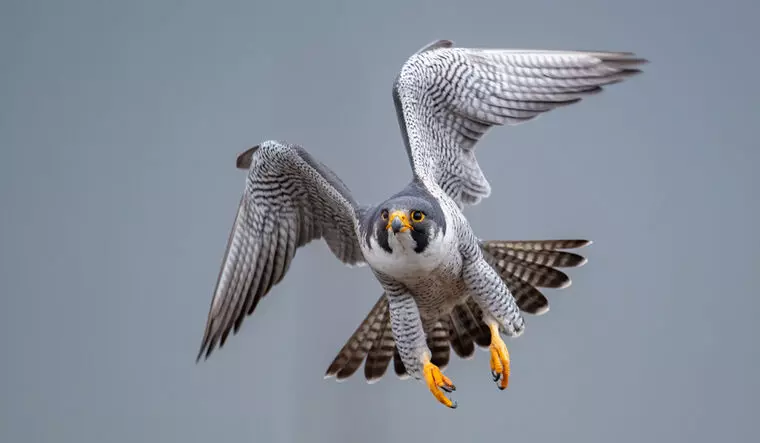
Biologists find evidence of a migratory gene in birds
text_fieldsBased on a new study published in the journal Nature, scientists say they have identified the strongest evidence of a new migratory gene in birds.
The study conducted by a team of researchers from the Chinese Academy of Sciences and Cardiff University also revealed that genetics in birds have a strong association with the distance of migration routes.
The study was conducted on 56 Arctic peregrine falcons from six populations by tagging them and tracking their journeys with the help of a satellite. Bird tagging refers to the attachment of a small, individually numbered metal or plastic tag to the leg or wing of a bird to enable individual identification of each bird.
The birds' annual flight distances and directions were analyzed in detail, and they observed that the birds used five migration routes across Eurasia. After doing the genome sequencing of 35 birds from four of these populations, the researchers found a gene- ADCY8 associated with differences in migratory distance.
The ADCY8 gene, which is usually known to be involved in long-term memory in other animals, had a variant at high frequency in long-distance migrant populations of peregrines suggesting that the variant is being preferentially selected because it may increase powers of long-term memory that are thought to be essential for long-distance migration in birds.
"Previous studies have identified several candidate genomic regions that may regulate migration, but our work is the strongest demonstration of a specific gene associated with migratory behaviour yet identified," said Professor Mike Bruford, a molecular ecologist from Cardiff University's School of Biosciences and one of the authors of the study.
The study also tried to combine animal movement and genomic data to identify the impact of climate change in the formation and maintenance of migration patterns of peregrines. The researchers revealed that if the current climate rate continues as in recent decades, there is a high chance for the peregrine populations in western Eurasia to decline and stop migrating altogether.
























